‘It took over my life’: Woman speaks out on rare condition that saw her pull her own hair out for 18 years
Rosie Myers, 30, of Hampshire, conquers the hair pulling condition trichotillomania and launches ethical haircare brand ‘nope’ with her girlfriend
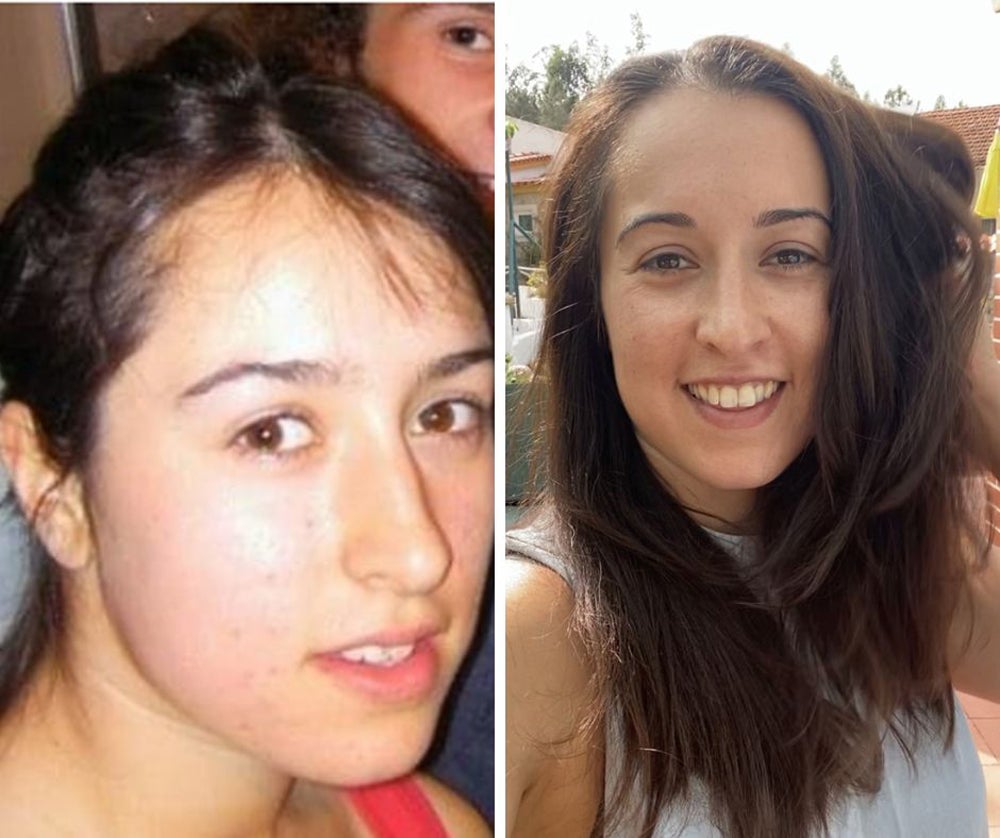
Your support helps us to tell the story
From reproductive rights to climate change to Big Tech, The Independent is on the ground when the story is developing. Whether it's investigating the financials of Elon Musk's pro-Trump PAC or producing our latest documentary, 'The A Word', which shines a light on the American women fighting for reproductive rights, we know how important it is to parse out the facts from the messaging.
At such a critical moment in US history, we need reporters on the ground. Your donation allows us to keep sending journalists to speak to both sides of the story.
The Independent is trusted by Americans across the entire political spectrum. And unlike many other quality news outlets, we choose not to lock Americans out of our reporting and analysis with paywalls. We believe quality journalism should be available to everyone, paid for by those who can afford it.
Your support makes all the difference.A businesswoman who compulsively yanked her own hair out for 18 years after her estranged father died in prison when she was nine has conquered her demons and launched a haircare brand.
Despite being close to her mother, retired bookkeeper, Pat Keirle, 62, and stepfather Kelvin Keirle, 68, a retired engineer, for years Rosie Myers, 30, struggled with the trauma of losing her dad, who she stopped seeing when she was five-years-old.
Unable to process her emotions, Rosie started pulling her hair out – a condition known as trichotillomania – finding the physical pain of self-harming a welcome distraction from the intense emotional trauma she did not have the tools to deal with.
After further loss triggered a mental breakdown for which she sought help, at last Rosie, who lives in Portsmouth, Hampshire, with her girlfriend, Chloe Andrews, 28, was able to stop her alarming habit, saying: “It took over my life.
“It was a vicious cycle. I’d feel stressed and I’d pull my hair out, then I’d feel ashamed and would pull more out.
“It became so deep-rooted in my subconscious to deal with emotional pain by pulling out my hair that I wouldn’t even know I was doing it.”
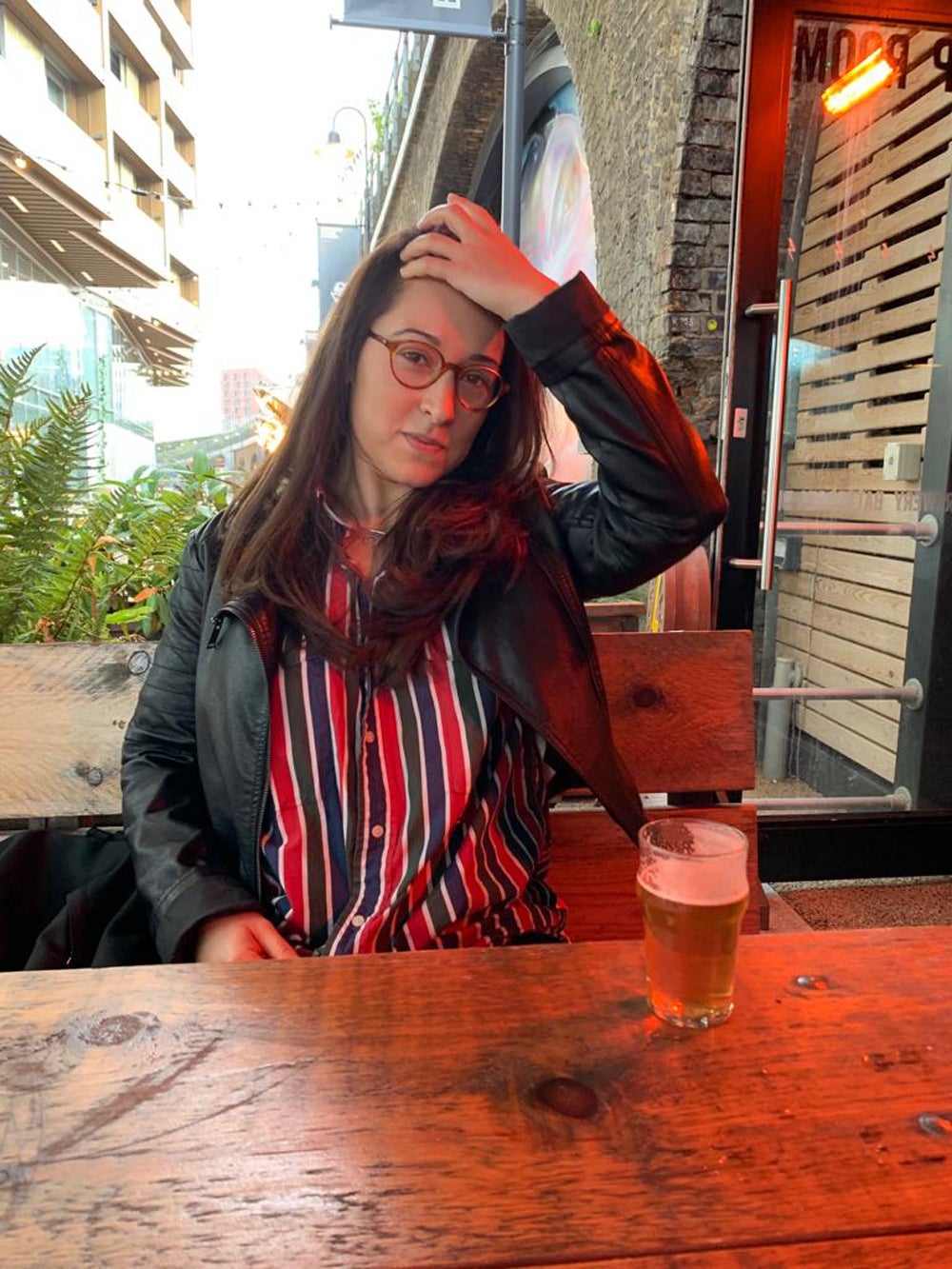
Ironically for Rosie, who does not discuss why her father was in jail and how he died out of respect to her family, it was suffering further loss that finally became her salvation.
When her family pet, a dog called Prince, died in 2017, followed by the loss of her paternal grandmother, Bernadette, aged 67, her world came crashing down.
She said: “I had a full on mental breakdown, crying all the time and realised I had never really processed everything that had happened.”
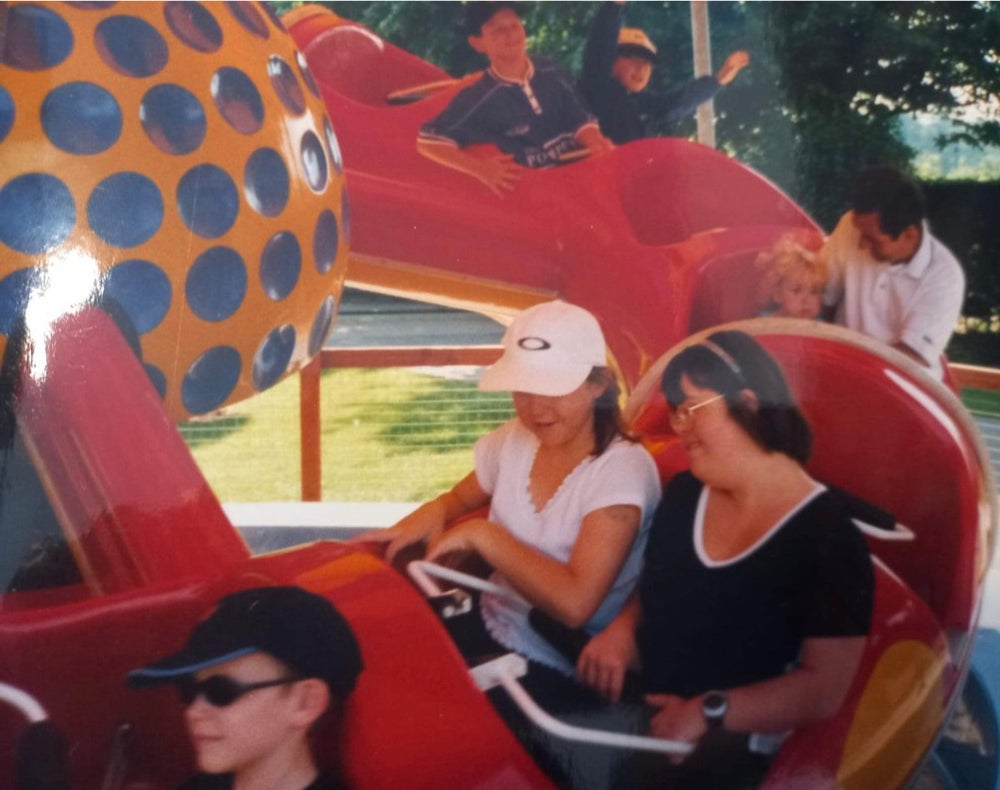
After a conversation with her concerned mother and best friends, Rosie signed up for talking therapy in a bid to conquer her demons for good.
She said: “I had to go back and speak to the little girl Rosie and tell her not to hurt anymore.
“It was a really painful process and really hard but, very slowly, I started to get there.”
It hurt, but actually that hurt felt like pain relief, because for a minute it felt like I was in control.
She added: “It didn’t happen overnight, but finally I started to look at those feelings I had as ones in the past – as if they were in the rear-view mirror, and move on.”
Now sporting a head of shining hair, Rosie’s journey to recovery was slow and difficult.
She said: “My dad was very troubled and wasn’t in my life from the age of five, but I still always missed him and wondered when I would see him next.”

She added: “After I found out he had died when I was nine years old, my entire world fell apart.”
Despite having therapy at school, Rosie’s fractured childhood soon took its toll.
She said: “I had always been top of the class, but I just started to feel so angry and I would direct that anger at anyone and everyone. I would get into fights and I stopped caring about anything.”

Overwhelmed by her feelings, when she turned nine, Rosie started to pull her hair out.
She said: “I had all this emotion and I didn’t know what to do with it.
“I remember lying in bed and running my hands through my hair and finding one that felt weird and pulling it out.”
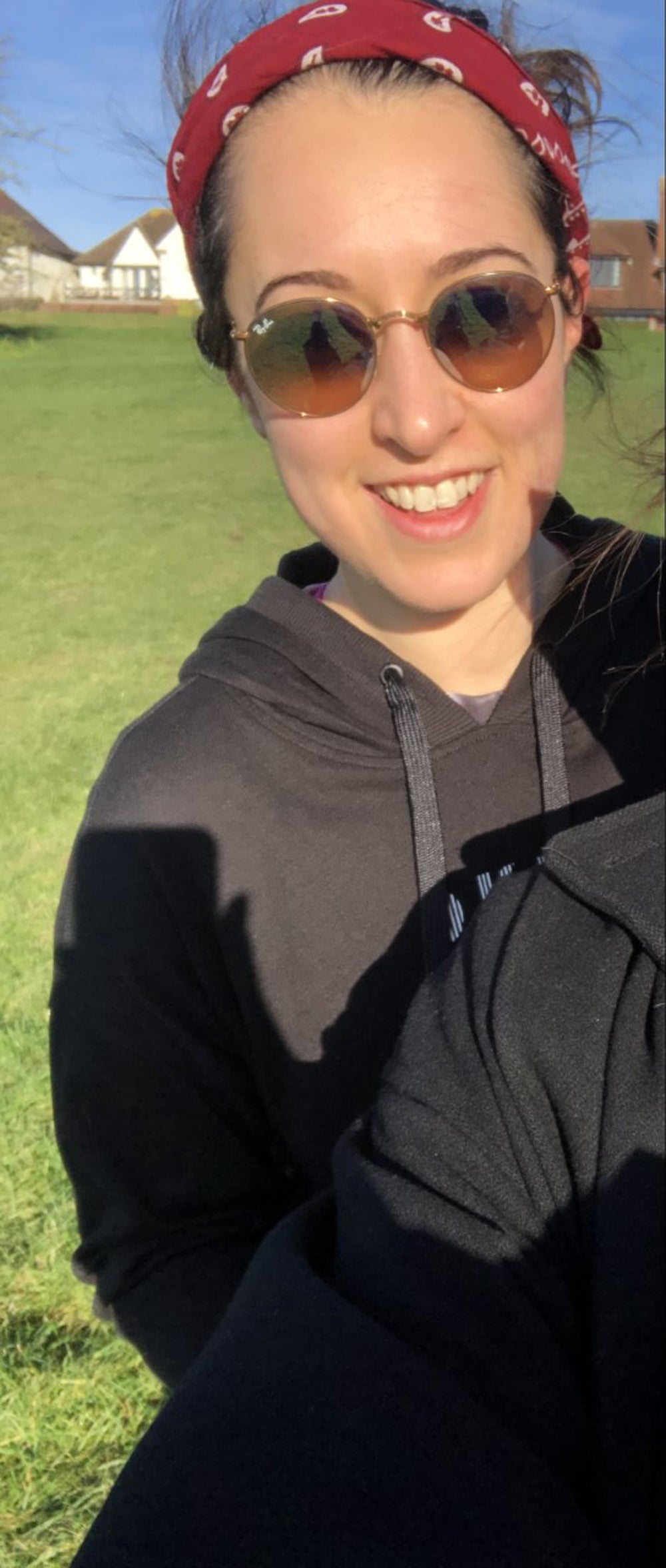
Rosie added: “It hurt, but actually that hurt felt like pain relief, because for a minute it felt like I was in control. I was choosing to hurt myself, rather than feeling the constant pain inside that I couldn’t stop. It was a comfort.”
Within three months, Rosie was pulling out her hair every single day, leaving her with noticeable bald patches.
She said: “I used to try and hide it from my mum, but I would pull out strands for hours and then look in the mirror and think, ‘Oh God, I have a bald patch on the left side of my head.'”
I looked like I was going bald and that shame made me feel even worse inside and so I pulled more hair out.
Rosie added: “It became so bad that if I got to breakfast time and hadn’t pulled any hair out, then that was a good day.
“That’s when I started to wear a baseball hat all the time, to try and hide my bald patches, or I’d try and comb over my hair to cover the bald spots.
“I hated walking in front of people because they would point out the bald patches on my head, so I would always sneak to the back to hide.”

She added: “I used to wear baggy clothing and took no pride in my appearance whatsoever, so people wouldn’t consider me one of the pretty girls.
“I just had such low self-esteem that it was easier to take myself out of that consideration and accept I wouldn’t be.”
Even though her school supported her with therapy, Rosie could not cope with her deep-rooted feeling of shame caused by pulling her hair out.
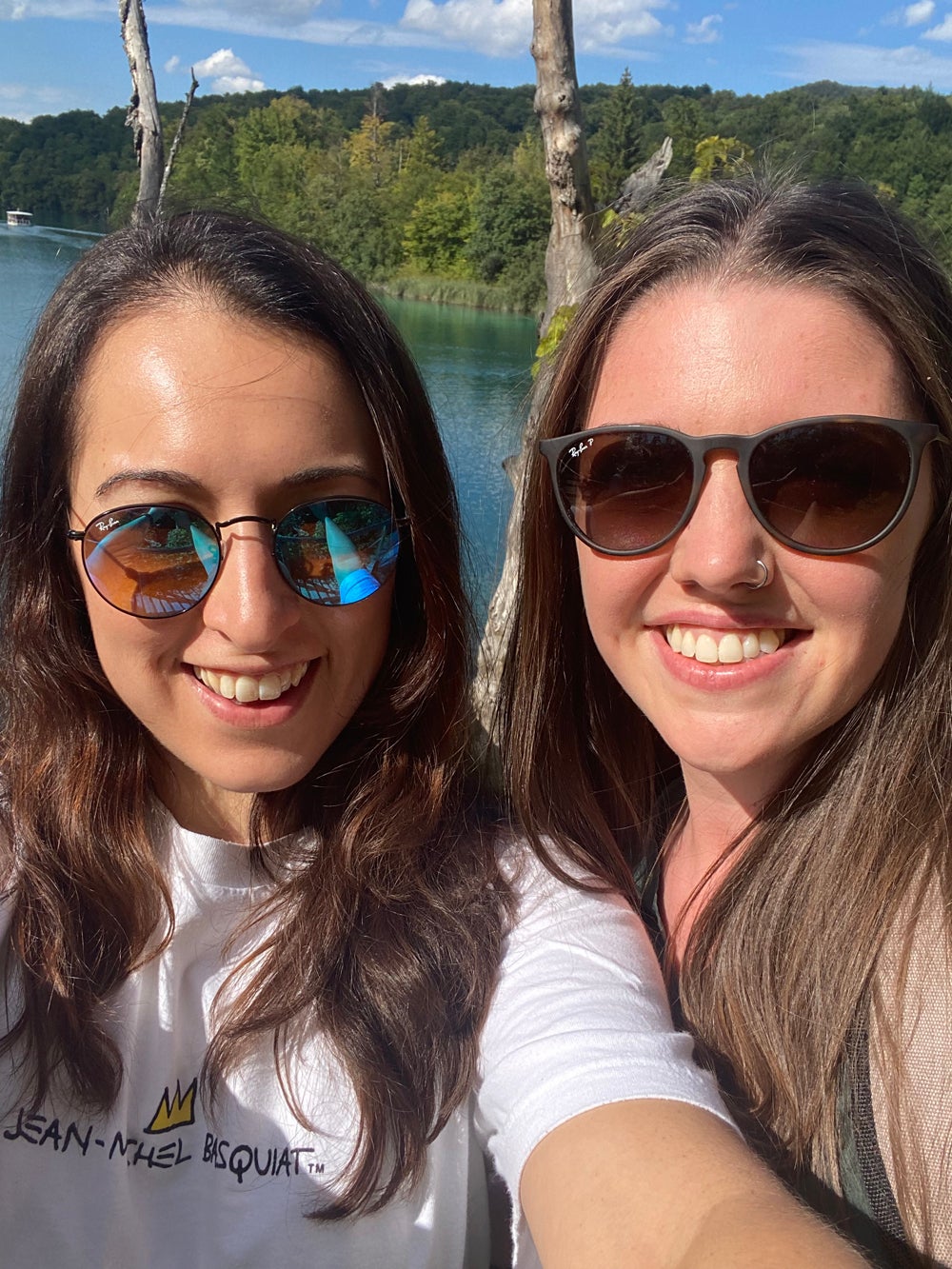
She said: “I felt so shameful.
“Hair pulling is such a horrible cycle. I looked like I was going bald and that shame made me feel even worse inside and so I pulled more hair out. ”
At the age of 11, Rosie finally put a name to her condition, trichotillomania – which, according to the NHS, is when someone cannot resist the urge to pull out their hair.
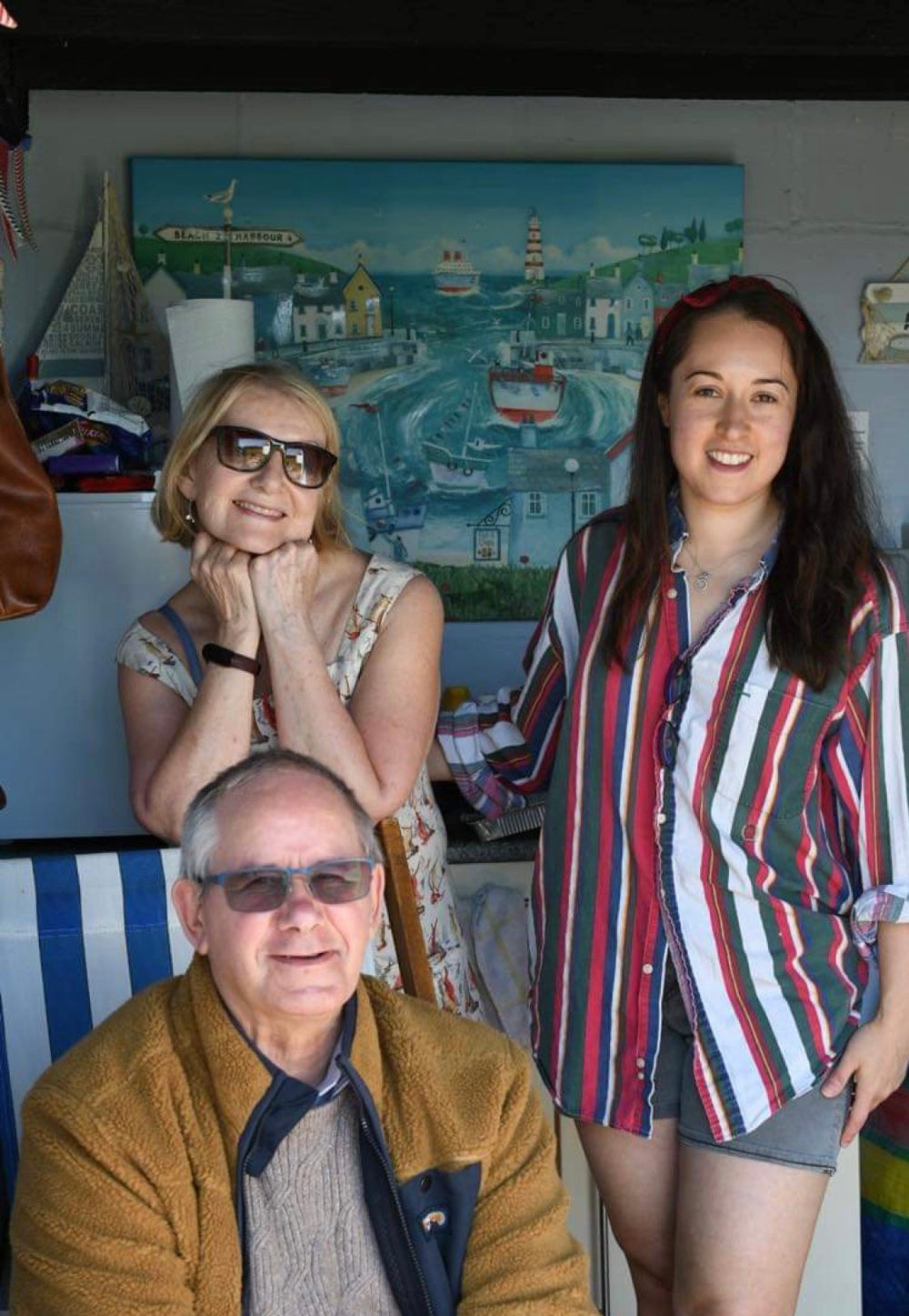
She said: “I remember going onto Google and typing in hair pulling and all these research papers came up.
“There were no personal accounts or forums, but there was lots of scientific research.
“I was so relieved reading it because I had carried this guilt for years and I finally had a name for it.”
The problem is that while hypnotherapy is amazing, it meant I was putting a plaster over the wound.
Several years later, she was given a glimmer of hope when her stepdad used hypnotherapy to quit smoking.
She said: “My stepdad had been a heavy smoker for 20 years and wanted to stop.
“He went to hypnotherapy and, after that, he never had another cigarette.”

Nearing the end of secondary school, aged 16, Rosie decided to try hypnotherapy herself.
She said: “I came out of the session and put my hand to my head and actively thought, ‘Why is my hand there?’ Then I moved it away.”
For 18 months, Rosie stopped pulling her hair out and revelled in her newfound confidence.
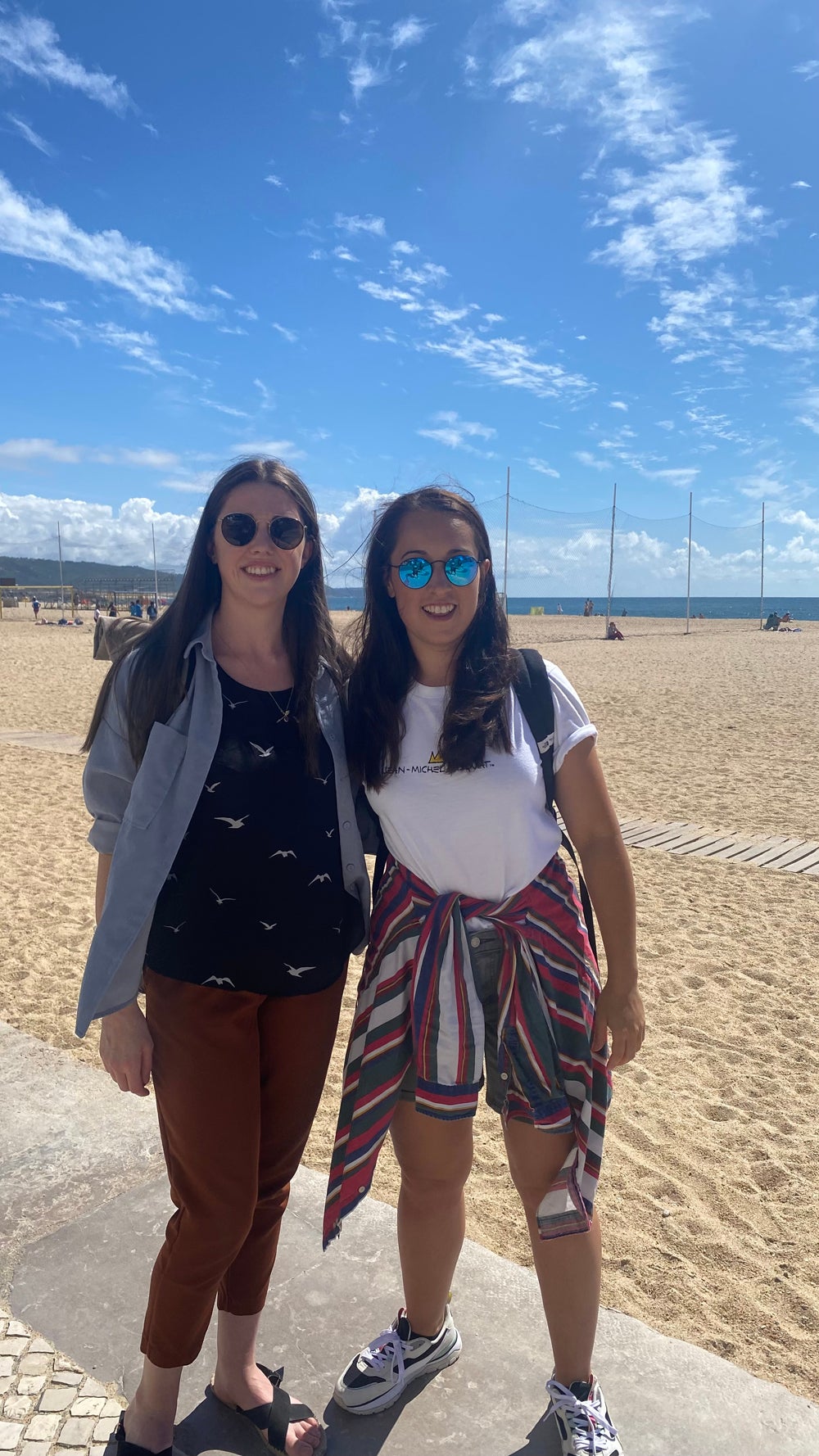
She said: “I really came out of my shell and started feeling back in control again.
“I had the confidence to go out and get a part-time job in a shop and even started dating.
“And then I went travelling around Australia, Vietnam and Thailand. It was amazing.”
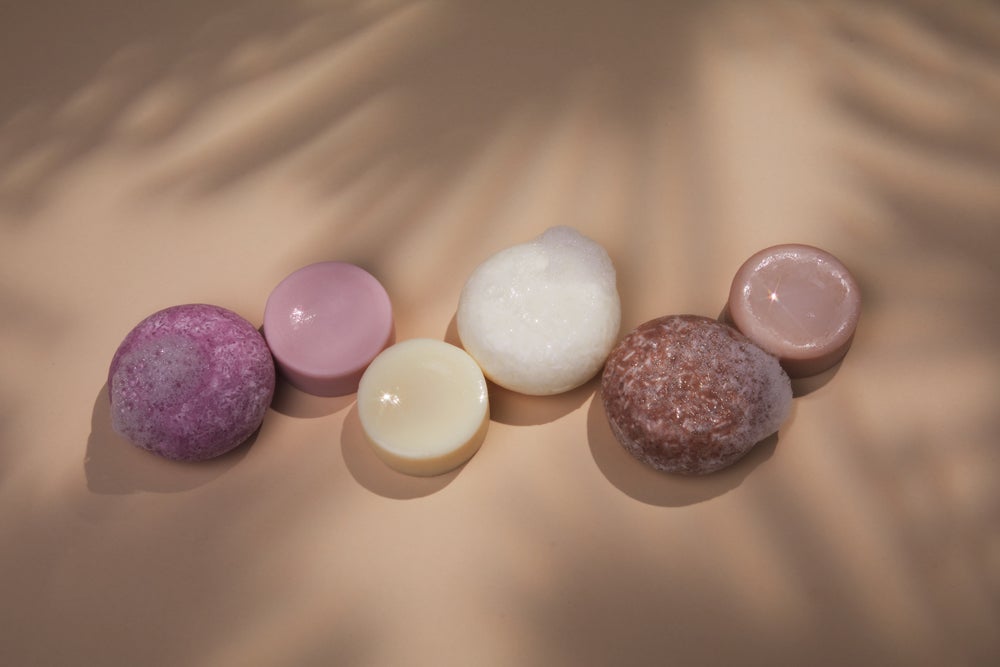
On returning home, Rosie started studying retail management at Bournemouth University but, sadly, the stress was hard for her to deal with.
She said: “The problem is that while hypnotherapy is amazing, it meant I was putting a plaster over the wound.
“I started to get stressed and then began pulling one hair out, then another and it built back up again.”
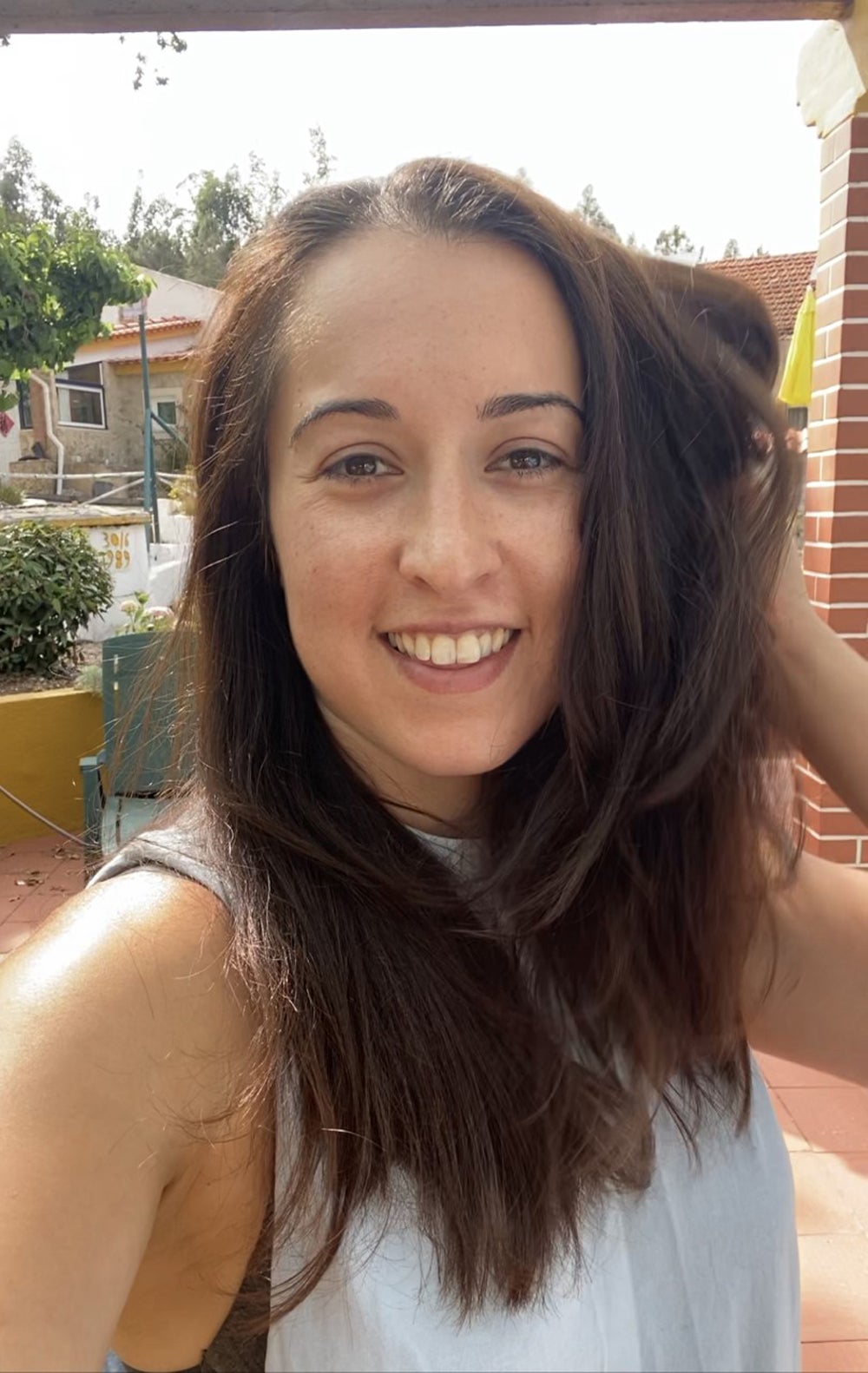
After leaving university, Rosie’s condition fluctuated depending on the stress of her jobs which included working in corporate sales across the food and drink industry.
Then, in 2017, when she lost her family pet and her nanny, she broke down.
But her mental collapse was the making of her, as she finally got the help she needed and slowly and carefully worked through her problems.

She said: “It was incredibly painful to work through them, but I feel like I can finally look at those feelings in the past.”
Taking time for her wounds to properly heal, it was on holiday in 2018 that Rosie came up with a fantastic idea.
She said: “I was in Cambodia, really relaxed and really happy.”

Rosie added: “I had noticed that my hair had grown back and had a look at the hotel shampoos, but the ingredients were terrifying – full of plastics.
“I had finally started to love my hair and wanted to take care of it and not to use these kind of products.”
But, despite hunting high and low for an ethical hair care product, that actually made her hair feel healthy, she remained empty handed.

So, resolved to solve the problem herself, after a year of research, she made her own product – leading to the birth in 2019 of her predominantly online ethical shampoo and conditioner bar business ‘nope’.
She said: “I launched in August 2019 and it meant the world to me.
“I finally felt like I had a purpose to make something better for people and for the planet and to encourage people to love themselves and their hair, too.
“After going through so much, if I can do anything to help people feel better, then it will make it all worth it.
“I love the fact I’ve been able to turn my pain into a passion for something that I feel so proud of.”
- To find out more about nope go to: https://www.howaboutnope.com/